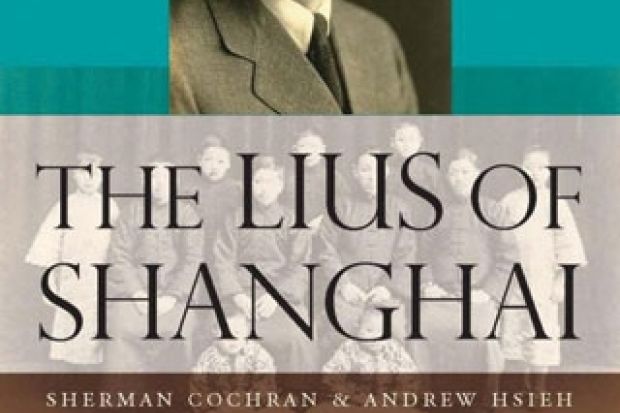On 1 October 1956, on the seventh anniversary of the founding of the People’s Republic of China, Liu Hongsheng, architect of what had once been an expansive family business empire across China, died in Shanghai of heart failure at the age of 68. His funeral was a lavish affair with flowers and eulogies sent by national leaders, including Mao Zedong, Zhou Enlai and Liu Shaoqi. This was an extraordinary commemoration for a capitalist in Communist China.
“The Lius”, as Sherman Cochran and Andrew Hsieh state, “might well have been considered China’s first family in the business world.” The Lius of Shanghai, however, is not a conventional family history. It is the history of one family’s communication across continents, wartime divides and ideological boundaries. Liu Hongsheng, the patriarch of the family, kept copies of all correspondence between him, his wife and their 12 children (nine sons and three daughters). This treasure trove of some 2,000 letters, written between the 1920s and the late 1950s, forms the core of the book. The result is an engaging and thoughtful account of one prominent and fabulously rich family through the turmoil of Nationalist China under Chiang Kai-shek, the Sino-Japanese War, the Civil War and the Communist Revolution. It is also a startlingly ordinary history of private family exchanges, albeit during extraordinary times.
Granted, little of the life of each family member was ordinary: the patriarch had made his fortune building a conglomerate of profitable businesses; his wife came from a wealthy merchant family; most of his children were sent abroad for all or part of their higher education, with the sons obtaining degrees from Harvard University, the Massachusetts Institute of Technology and the universities of Cambridge and Pennsylvania. Cochran and Hsieh have allowed themes rather than chronology to guide the narrative. Chapters, for instance, on the struggle of the three eldest sons to obtain access to Oxbridge entry examinations while living in unfamiliar England, the eldest daughter’s affair with a married man, and the father’s exile in Hong Kong and Chongqing during the Sino-Japanese War trace individual life within the extended family.
The concerns expressed in the letters, the problems discussed, the joys shared and the differences battled out, however, provide intimate and more ordinary portrayals of parenthood, adolescence and ageing in modern China. The authors examine the letters as a prism through which to understand family dynamics and the role of individuals within this family structure. Underpinning their analysis is the fascinating history of increasingly transcultural communication as the sons and daughters negotiated the challenges of their everyday lives abroad through their letter exchanges. Word choice, communication patterns and methods of persuasion are as indicative of these challenges as they are of changing power relations between the different generations of the Liu family.
Its thematic chapter structure is at once the book’s strength and occasional weakness. Cross-references between chapters at times presume that the reader can remember certain facts that were mentioned much earlier. Those unfamiliar with Chinese history may require some further background reading. Nonetheless, the chosen structure is much preferable to a straightforward chronological family history. In letting individuals speak through extensive quotations from their writings, Cochran and Hsieh have successfully complicated our picture of the fabled Chinese patriarchal system and have enabled a rare glimpse into the private life of one family. They have also contributed to a simple yet powerful message: Chinese families were as much guided by likes, dislikes, love, emotion and competition as their counterparts outside the country. The Lius of Shanghai is a reminder that attempts to orientalise China’s family structures should be treated with caution.
The Lius of Shanghai
By Sherman Cochran and Andrew Hsieh
Harvard University Press, 472pp, £25.00
ISBN 9780674072596 and 73845 (e-book)
Published 25 April 2013
Register to continue
Why register?
- Registration is free and only takes a moment
- Once registered, you can read 3 articles a month
- Sign up for our newsletter
Subscribe
Or subscribe for unlimited access to:
- Unlimited access to news, views, insights & reviews
- Digital editions
- Digital access to THE’s university and college rankings analysis
Already registered or a current subscriber? Login




